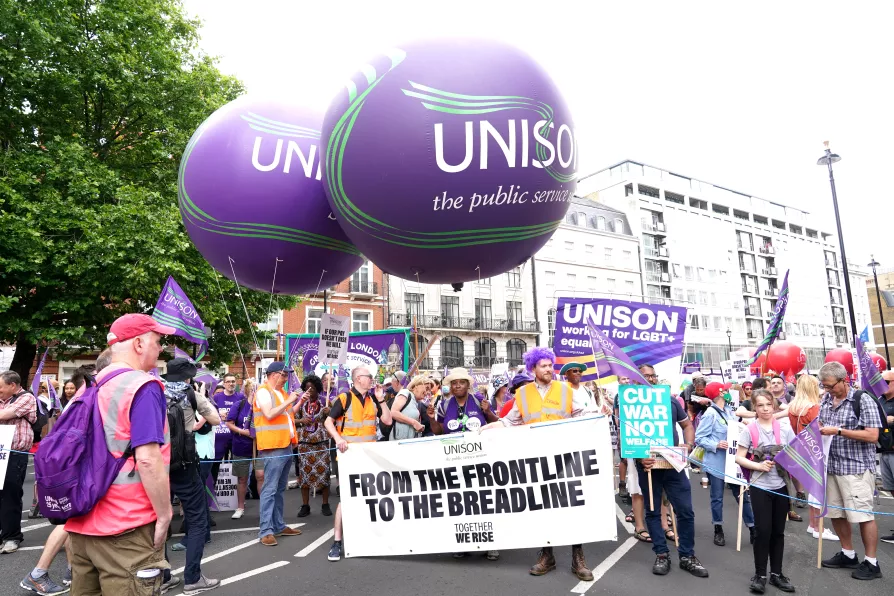RAMZY BAROUD looks at how entire West Bank communities have been shattered, their social and physical fabric deliberately dismantled by Israel to enable its formal annexation

 Unison members and members of the public gather on Portland Place ahead of a TUC national demonstration in central London to demand action on the cost of living, a new deal for working people and a pay rise for all workers, June 18, 2022
Unison members and members of the public gather on Portland Place ahead of a TUC national demonstration in central London to demand action on the cost of living, a new deal for working people and a pay rise for all workers, June 18, 2022
ACTIVISTS from Unison, the largest union in the country, are gathering in Brighton two weeks before the general election.
Unison members are predominantly in local government and the NHS but also work in the voluntary sector, higher education, police, transport and utilities.
Most members have seen inadequate pay settlements and cuts to the funding of their services. In local government, an employer’s flat rate consolidated offer of £1,290 is out to consultation with a leadership recommendation to reject. No 2024 pay offer has been made in the NHS three months after the April settlement date.
From today the union will be debating a number of key issues, including the climate emergency, challenging the exploitation of migrant workers through organising and LGBT+ rights.
The union will also celebrate 2024 as the year of LGBT+ workers in debates this afternoon. The battle for full equality is ongoing and employers can adopt policies that ensure all staff are treated properly in the workplace. In the wider community issues such as banning “conversion therapy” have still to be implemented.
A leading debate for the union tomorrow is the need for the incoming government to implement a national care service.
Unison is leading the campaign for social care to become a nationally recognised institution which can respond to the needs of older people and disabled people. Care is currently being delivered by private companies, with national standards not being enforced, care workers facing poverty wages, a staffing crisis and difficult working conditions.
Unison is campaigning for a fully funded national care service which provides quality care for service users and national pay, terms and conditions for care workers focusing on good quality care instead of profits for shareholders and private companies. With any change of government, it is key that the union holds the incoming government’s feet to the fire on this issue.

MICAELA TRACEY-RAMOS explains how Britain’s largest union is putting pressure on the British government to recognise the Palestinian state and end its complicity with Israel’s murderous actions

ANDY CHAFFER previews this week’s conference, where delegates will celebrate the strategies that have secured £40 million for NHS workers and debate the catastrophe of Labour and Tory austerity that has working-class voters turning to Reform UK












